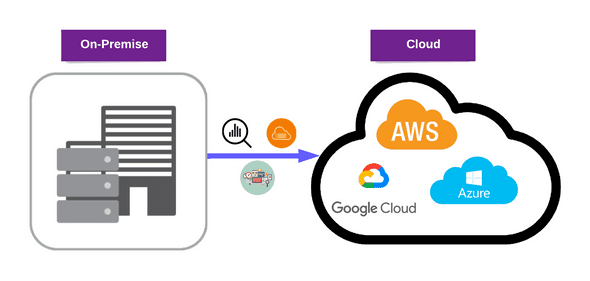
In the fast-paced world of startups, every decision can make or break your trajectory. From developing your minimum viable product (MVP) to scaling to millions of users, infrastructure choices play a critical role. For many burgeoning businesses, the answer lies unequivocally in the cloud, and specifically, in migrating to Amazon Web Services (AWS).
Why should your startup make the leap to AWS? The benefits are transformative, offering a solid foundation for innovation, rapid growth, and long-term success.
Why AWS is the Launchpad Your Startup Needs
1. Slash Upfront Costs and Preserve Capital
For startups, capital is king. Every dollar saved on infrastructure can be reinvested into product development, marketing, or talent. AWS eliminates the need for expensive upfront hardware purchases, data centers, and the associated maintenance.
- Pay-as-you-go Model: You only pay for the computing power, storage, and other resources you actually consume. No more guessing future capacity needs and over-provisioning.
- Reduced Operational Expenses: Less need for dedicated IT staff to manage physical servers, cooling, and power. This frees up your lean team to focus on what matters most: building your product.
2. Unmatched Scalability: Grow Without Limits
Startups dream of exponential growth. But what happens when that growth hits your on-premise servers? Bottlenecks, performance issues, and missed opportunities. AWS offers unparalleled scalability to handle unpredictable demand spikes.
- Elasticity on Demand: Instantly scale your computing power (e.g., EC2 instances), storage (e.g., S3, EBS), and databases (e.g., RDS) up or down within minutes. Handle viral traffic spikes without breaking a sweat, then scale down to save costs during quiet periods.
- Global Infrastructure: Easily deploy your applications in multiple AWS regions around the world, bringing your services closer to your users and ensuring low latency, even as your user base expands globally.
3. Accelerate Development and Time to Market
Speed is paramount for startups. Getting your product to market faster, iterating quickly, and responding to user feedback are crucial for gaining a competitive edge.
- Rapid Provisioning: Spin up servers, databases, and development environments in minutes, not days or weeks.
- Developer-Friendly Tools: AWS offers a vast array of services and APIs that empower developers to build, deploy, and manage applications with unprecedented speed and efficiency.
- Focus on Innovation: By offloading infrastructure management, your engineers can dedicate their time and creativity to developing core features and innovating, rather than maintaining servers.
4. Enterprise-Grade Reliability and Security from Day One
As a startup, you might not have the resources for a robust in-house security or disaster recovery team. AWS provides a highly secure and resilient infrastructure that would be incredibly expensive to replicate on your own.
- Built-in Redundancy: AWS infrastructure is designed for high availability, with data distributed across multiple Availability Zones to protect against outages.
- Robust Security Measures: Benefit from AWS’s continuous investment in security, including physical data center security, network protection, encryption options, and a comprehensive suite of security tools.
- Compliance Ready: AWS adheres to numerous international and industry-specific compliance standards, giving your startup a head start on meeting regulatory requirements.
5. Access to Cutting-Edge Technologies (Without the Heavy Investment)
AWS isn’t just about servers and storage. It’s a vast ecosystem of advanced services that can give your startup a significant competitive advantage.
- AI/ML at Your Fingertips: Leverage services like Amazon SageMaker, Rekognition, or Comprehend to integrate artificial intelligence and machine learning into your products without needing deep in-house expertise or massive computing power.
- Data Analytics: Utilize services like Amazon Redshift, Kinesis, or Athena to process and analyze large datasets, gaining critical insights into your users and business performance.
- IoT, Serverless, and More: Experiment with and integrate innovative technologies like serverless computing (Lambda), Internet of Things (IoT), and augmented reality (AR) to build next-generation applications.
6. Focus on Your Core Business, Not Infrastructure Woes
Every minute spent on infrastructure management is a minute not spent on building your product, acquiring customers, or perfecting your user experience. Migrating to AWS allows you to delegate these operational burdens.
- Managed Services: Utilize managed services like Amazon RDS (for databases), Amazon Sagemaker (for ML), or Amazon EKS (for Kubernetes) to offload operational overhead and let AWS handle the heavy lifting.
- Reduced Operational Complexity: Spend less time on patching, hardware failures, and network configurations, and more time on driving your startup’s vision forward.
Your Startup’s Journey to the Cloud
Migrating to AWS is more than just a technical decision; it’s a strategic move that can significantly impact your startup’s trajectory. By embracing AWS, you’re not just getting infrastructure; you’re gaining a partner that empowers you to be agile, cost-efficient, secure, and infinitely scalable.
Start small, iterate often, and leverage the vast resources and community available from AWS. Your journey to the cloud can be the catalyst that transforms your startup’s potential into a thriving reality.

